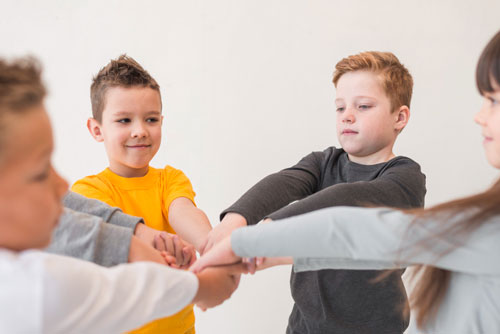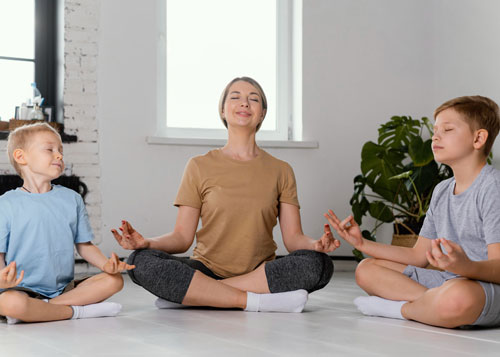In today’s fast-paced world, where screens dominate our attention and sedentary lifestyles have become the norm, the significance of maintaining correct posture often goes unnoticed. However, the impact of posture on our physical and mental well-being cannot be underestimated.
The Body’s Blueprint for Balance
When we think of posture, we usually envision a straight back and shoulders pulled back. While this is accurate, correct posture encompasses much more than just appearances. It serves as the body’s blueprint for balance, alignment, and functionality. A properly aligned body ensures that muscles and joints work harmoniously, reducing the risk of strain, pain, and injury.
Maintaining an upright posture keeps the spine in its natural curvature, distributing the body’s weight evenly. This minimizes pressure on the spine and surrounding muscles, preventing the development of musculoskeletal issues such as back pain, neck pain, and even headaches. By simply making a conscious effort to sit and stand tall, we pave the way for a healthier, pain-free future.

The Confidence Connection
Have you ever noticed how a person with confident posture exudes self-assurance and charisma? Correct posture can have a profound impact on our mental state and how we perceive ourselves. The mind and body are closely intertwined, and adopting a strong posture can positively influence our mood and confidence levels.
Studies have shown that standing or sitting in an upright position can lead to an increase in testosterone levels and a decrease in cortisol, the stress hormone. This hormonal shift not only makes us feel more powerful but also reduces feelings of anxiety and stress. Furthermore, improved posture fosters a positive body image and self-esteem, as it conveys a sense of self-care and respect.

Posture and the Mind-Body Connection
Now, let’s explore the fascinating connection between posture and mental health, specifically in relation to childhood trauma and depression. Research has revealed that early life experiences, such as trauma, can shape not only our psychological well-being but also our physical posture.
Childhood trauma, which encompasses experiences like neglect, abuse, or loss, can leave a lasting impact on the body. Individuals who have experienced trauma often develop a defensive posture characterized by rounded shoulders and a protective stance. This physical adaptation is believed to be a defense mechanism, a way for the body to shield itself from potential threats.
Interestingly, this defensive posture can extend to adulthood, even in the absence of an immediate threat. The perpetuation of such posture is associated with a heightened risk of mental health issues, particularly depression. The hunched posture limits the lung capacity and inhibits the free flow of breath, which can contribute to feelings of fatigue, low energy, and a gloomy mood—common symptoms of depression.
Conclusion: The Art of Mindful Alignment
In a world where distractions abound and technological devices dictate our daily routines, it’s crucial to recognize the transformative power of correct posture. Beyond the physical benefits of pain reduction and injury prevention, maintaining an upright posture cultivates confidence, boosts mood, and nurtures the mind-body connection.
As we’ve explored, childhood trauma and depression are not isolated experiences but are intricately linked to the way we hold ourselves. By becoming mindful of our posture and understanding its impact on our mental and emotional states, we can take a proactive step toward improving our overall well-being.
So, the next time you catch yourself slouching or hunching over your desk, remember that the way you hold yourself is a reflection of your inner world. Embrace the art of mindful alignment, stand tall, and let your posture become a beacon of your resilience, strength, and optimism.
Whether you’re at your desk, on your daily walk, or engaged in conversation, let your posture speak volumes about the empowered individual you are, both inside and out.







